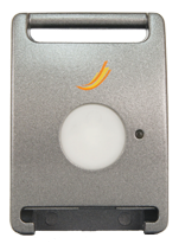Scientists from Newcastle University are examining childhood anxiety for treating adolescents’ anxiety using Affectiva Q Sensors. Affectiva, an entity of MIT, is designing the Q sensor, a biosensor that determines the emotional status of a person during stress and excitement.

The aim of the study is to find out the direct correlation between the physiological response to anxiety and cognitive response.
A doctoral fellow of Newcastle University, Amanda Wild used the Q sensor in December 2011 for determining emotional arousal in adolescents through their physiological reactions. The physiological reactions such as physical activity, electrodermal activity, and skin temperature are included in the study. Skin conductance was used to measure the electrodermal activity and the brain’s defense response was also registered.
Teens having both low and high intolerance levels for anxiety have been selected for the study. Adolescent students, who are wearing the Q sensors at school, finish a computerized decision making assignment. While performing the task, the emotional response is triggered which is measured and compared with another group reporting self anxiety. The research team wanted to explore the difference between the groups based on the intolerance levels of anxiety.
The study is expected to be completed by September 2012. By using the Affectiva Q sensors, the research team will observe the human body’s physiological responses to emotions and the ability of an individual to handle the situation. This research will help in sophisticated clinical approaches to treat adolescent anxiety.